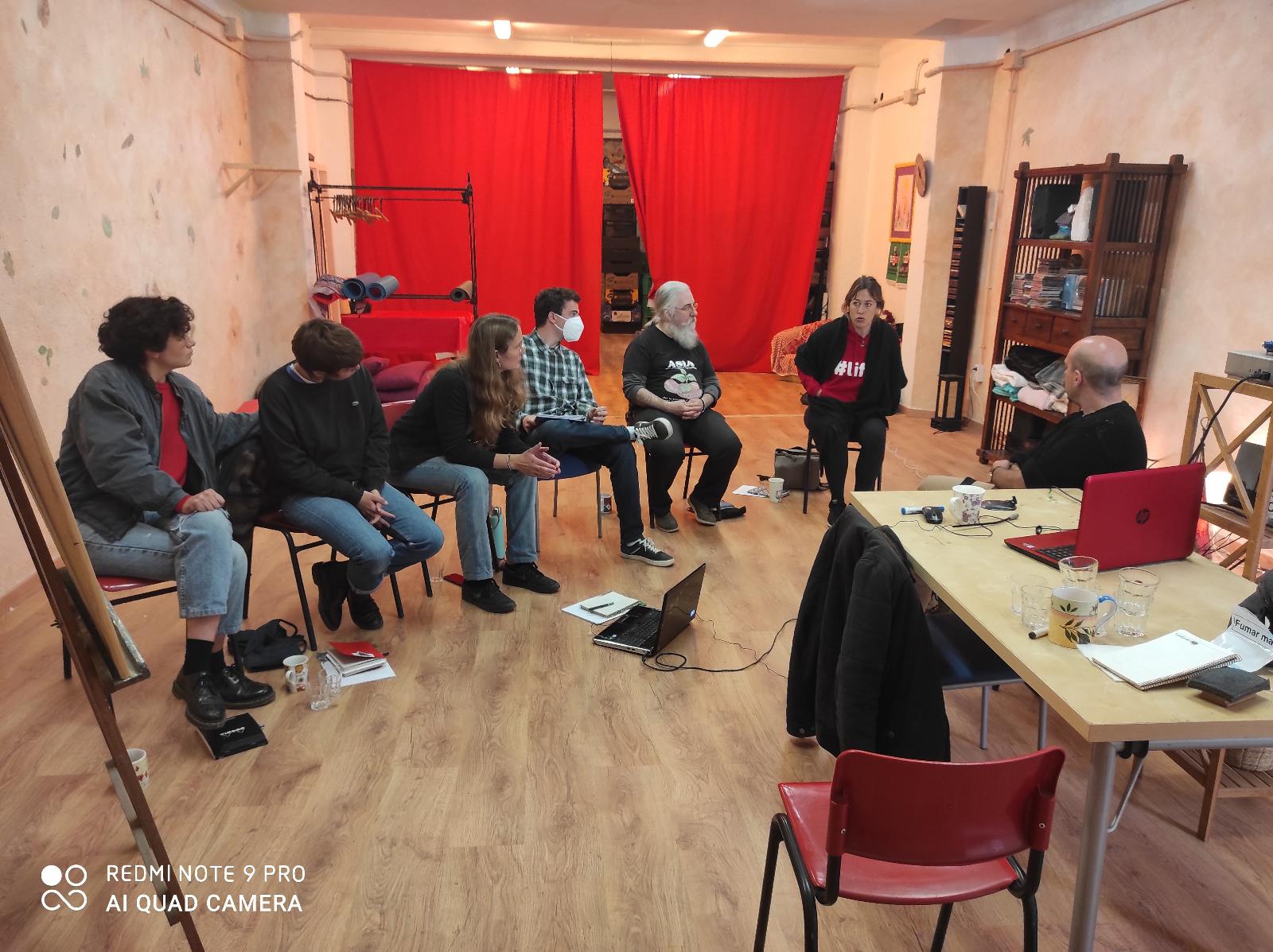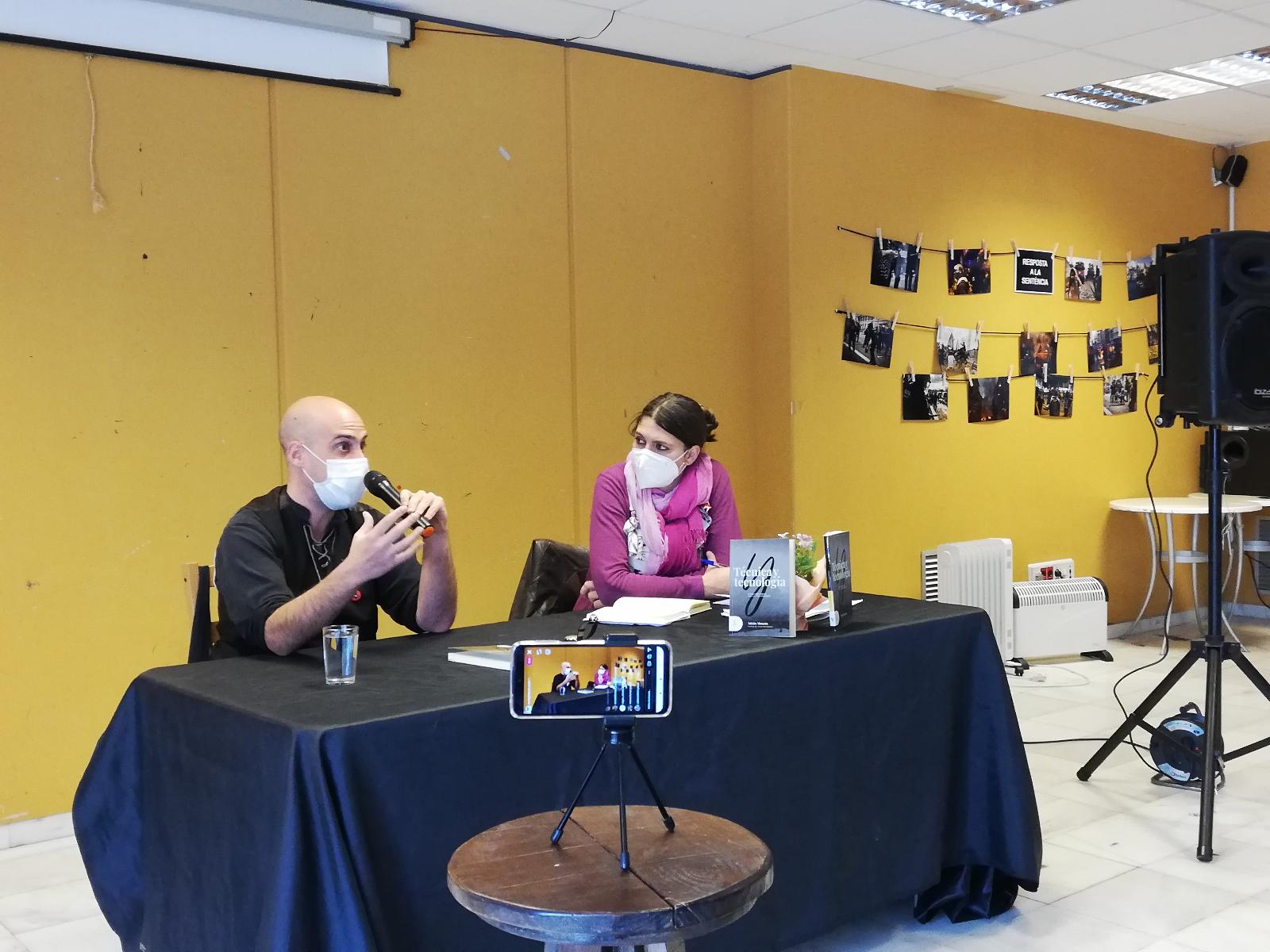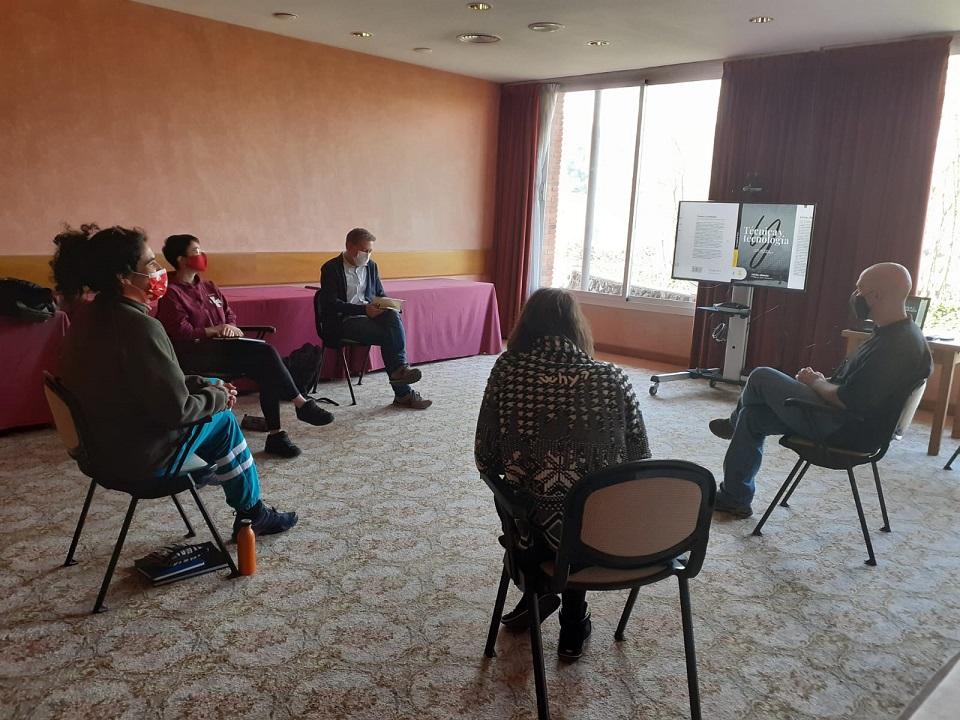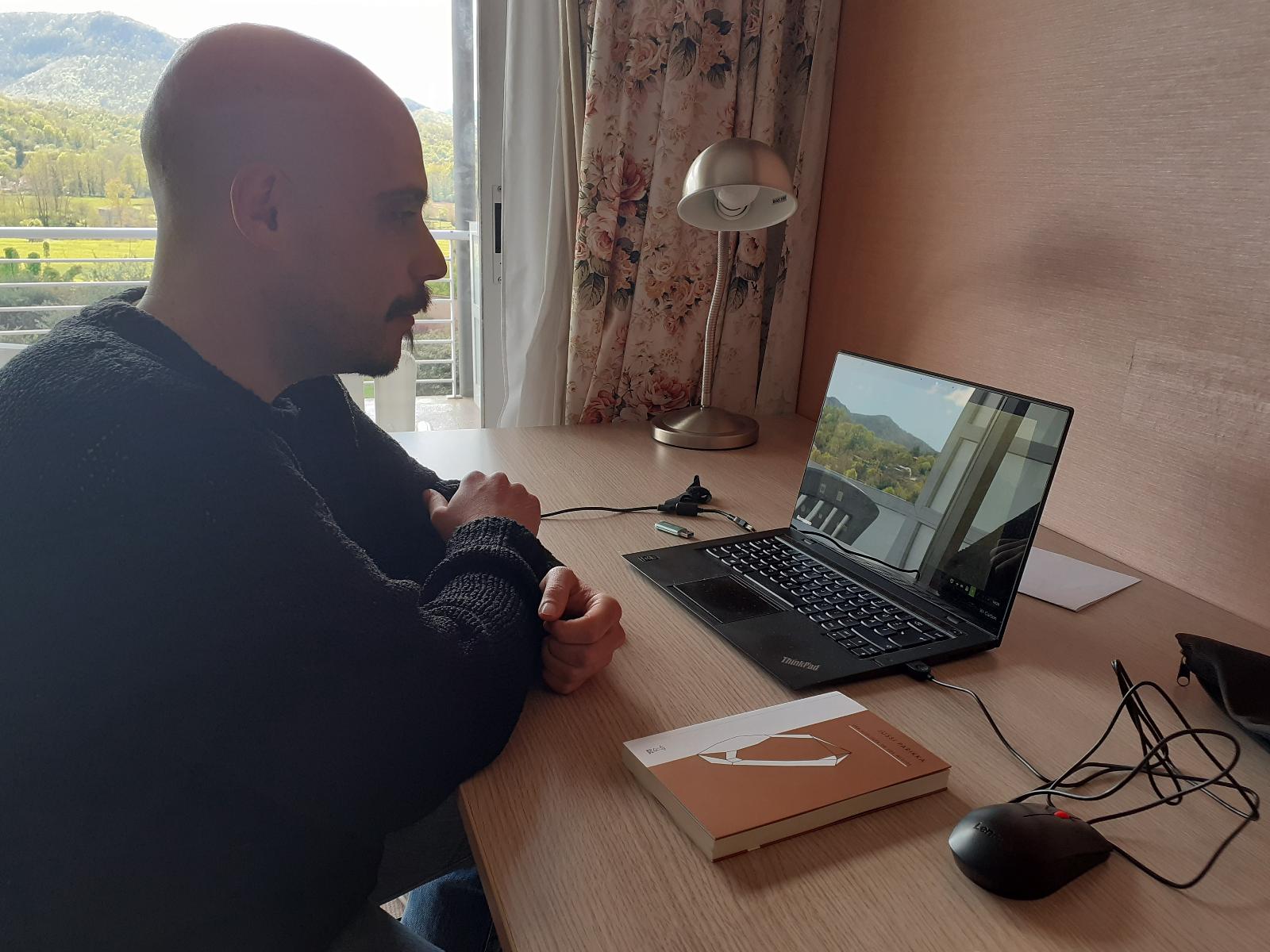Collective residencies / Science, technology and humanities or science and digital humanities? / Olot
ADRIÁN ALMAZÁN GÓMEZ
From Monday, 12 April 2021 to Friday, 23 April 2021
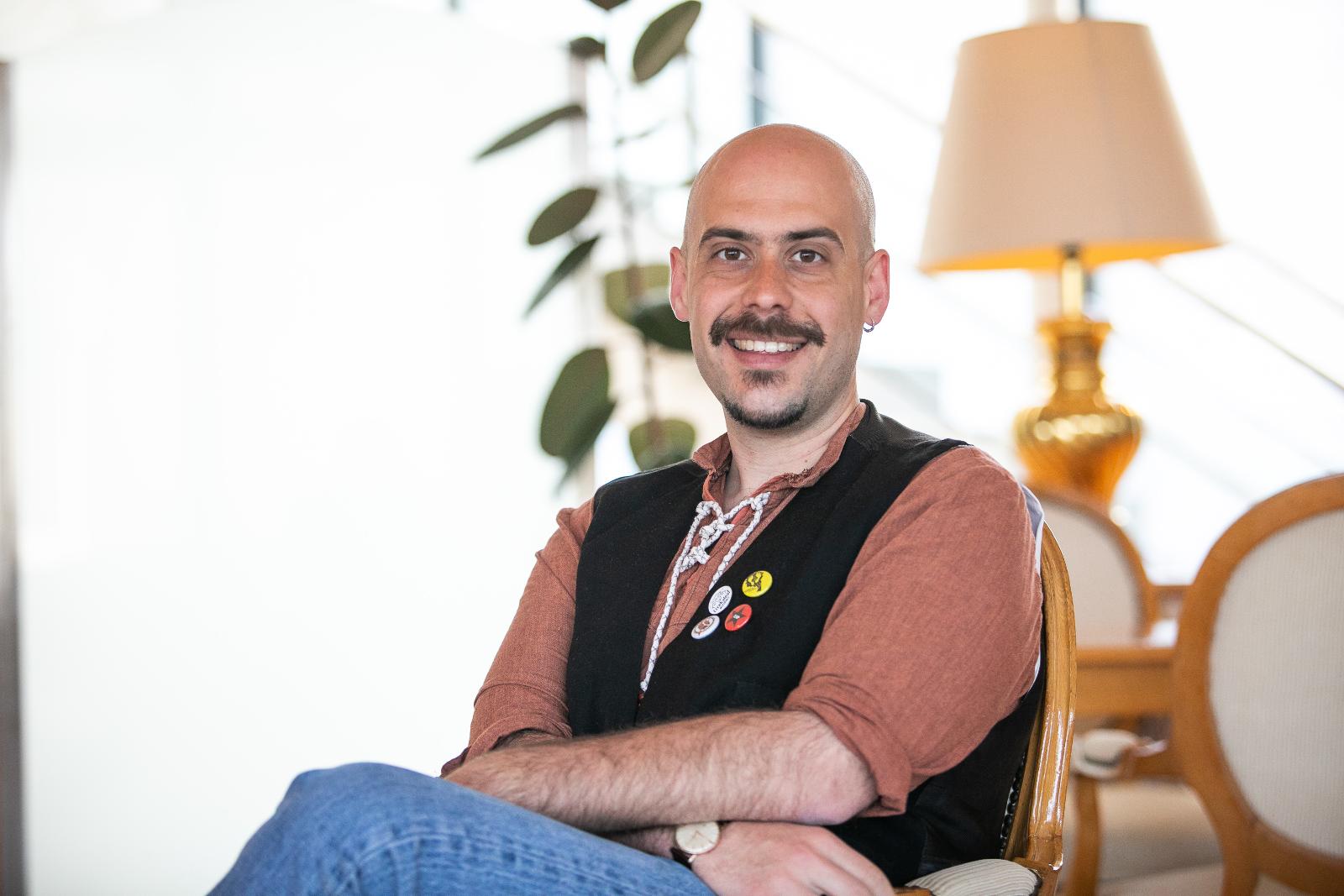
Bio
Adrián Almazán has a physics degree and a philosophy PhD from Universidad Autónoma de Madrid. In his research, developed from an ecosocial perspective, he has focused on approaching technologies from a poliethical perspective. Also, and starting from the basis of an ongoing collapse of our civilization, he has explored new ruralities as alternatives. Such research is carried out within the framework of the Transdisciplinary Research Group on Socioecological Transitions. He is currently a professor at the University of Deusto and a member of its Center for Applied Ethics. He is also a translator and activist in Ecologistas en Acción, where he co-coordinates the area of digitalization and CEM. He is also member of La Torna collective. Among his most recent publications are the books "Contra la doctrina del shock digital", written with Jorge Riechmann and published by CDC and "Técnica y tecnología", which will be published in May by Taugenit.
Project
During my stay at Faberllul I will continue my recent work on the implications of society’s digitalization in times of ecosocial collapse. Understanding technology as a political phenomenon, and therefore as non-neutral, I will try to systematize my reflections on the social, economic, political but also ecological and subjective-anthropological impacts of society and life’s digitalization. These reflections are intended to be sistematized in a book and will be put at the service of social movements in order to open a debate: are digitalization and social emancipation compatible?
A place to think (together with the others)
The two weeks I've spent at the research and creation residency in Olot have meant not only an important step forward in my reflection and research, but above all the possibility of thinking in a different way. On the one hand because the conditions of the place, with the silence, the surroundings and the conditions, have allowed me to focus my reading and writing efforts in a way that the hectic contemporary world makes simply impossible. But above all because the thematic framework in which the stay took place gave rise to a real ecosystem of discussions, themes, care and affection that I will not forget for a long time.
The time spent in Olot was a practical example that we need to rethink how we think. To put exchange, listening and affection at the centre of a knowledge that is not of the world, but in and with the world. For me, the possibility of thinking about the critique of technology not only from the perspective of philosophy, but also of medicine, history and theatre hasbeen especially enriching.
An unforgettable experience that I will try to repeat as soon as possible.

